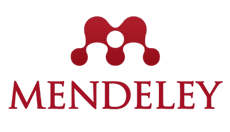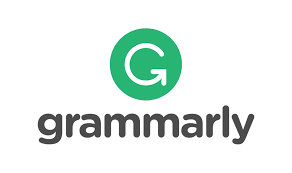Relevansi Kurikulum Merdeka Berbasis Literasi Digital Menuju Generasi Indonesia Emas 2045
DOI:
https://doi.org/10.57176/jn.v4i2.148Keywords:
kurikulum merdeka, literasi digital, generasi emas, Indonesia 2045Abstract
Kurikulum Merdeka menekankan pada pengembangan kemampuan adaptasi dan pembelajaran sepanjang hayat. Berikut adalah beberapa poin penting dalam paradigma ini yaitu pembelajaran berpusat pada siswa,peningkatan keterampilan abad ke-21, integrasi teknologi, pembelajaranlintas disiplin, pengembangan karakter dan etika dan keterlibatan komunitas. Kurikulum Merdeka menekankan pada pengembangan kemampuan adaptasi dan pembelajaran sepanjang hayat. Penelitian Penelitian menggunakan pendekatan kualitatif deskriptif, yang bertujuan untuk mengetahui Relevansi Kurikulum Merdeka Terhadap Literasi Digital Menuju Generasi Indonesia Emas 2045 Pendekatan studi kasus melalui bedah artikel ilmiah digunakan karena peneliti ingin melakukan pengambilan data secara mendalam serta menyertakan berbagai sumber informasi. Kurikulum Merdeka adalah paradigma baru dalam pendidikan yang bertujuan untuk menghadapi tantangan abad ke-21. Paradigma ini menekankan pada pengembangan keterampilan abad ke-21, seperti keterampilan berpikir kritis, kreativitas, kolaborasi, komunikasi, pemecahan masalah, dan literasi digital. Dalam menghadapi abad ke-21, dunia mengalami perubahan yang cepat dan kompleks, terutama karena perkembangan teknologi dan globalisasi. Literasi digital juga penting dalam mengatasi kesenjangan digital yang ada di kalangan siswa. Guru yang memahami literasi digital dapat membantu siswa yang memiliki akses terbatas terhadap teknologi atau yang tidak terbiasa dengan penggunaan teknologi. Dengan pemahaman literasi digital, guru dapat merancang strategi pembelajaran yang inklusif dan memberikan bimbingan serta dukungan kepada siswa yang membutuhkannya menuju generasi emas indonesia 2045 mendatang.
_________________________________________________________________________________
The Independent Curriculum emphasizes the development of adaptability and lifelong learning. Here are some important points in this paradigm, namely student-centered learning, improving 21st century skills, technology integration, cross-disciplinary learning, character and ethics development and community involvement. The Independent Curriculum emphasizes the development of adaptability and lifelong learning. Research The research uses a descriptive qualitative approach, which aims to determine the Relevance of the Independent Curriculum to Digital Literacy Towards the Golden Generation of Indonesia 2045. The case study approach through scientific article analysis is used because researchers want to collect data in depth and include various sources of information. The Independent Curriculum is a new paradigm in education that aims to face the challenges of the 21st century. This paradigm emphasizes the development of 21st century skills, such as critical thinking skills, creativity, collaboration, communication, problem solving, and digital literacy. In facing the 21st century, the world is experiencing rapid and complex changes, especially due to technological developments and globalization. Digital literacy is also important in overcoming the digital divide that exists among students. Teachers who understand digital literacy can help students who have limited access to technology or who are not familiar with using technology. With an understanding of digital literacy, teachers can design inclusive learning strategies and provide guidance and support to students who need it towards the golden generation of Indonesia 2045.
References
Agustang, A., Suardi, S., Putra, A. D. M., & Oruh, S. (2021). Pemberdayaan Guru Mata Pelajaran Sosiologi Melalui Literasi Digital Berbasis Quick Response Code di Kecamatan Bissappu Kabupaten Bantaeng. Abdi: Jurnal Pengabdian Dan Pemberdayaan Masyarakat, 3(2), 175–188. https://doi.org/10.24036/abdi.v3i2.120
Chaiyakun, S., & Yang, J. W. L. (2024). Digital Renaissance: A Comprehensive Exploration Of Education Transformation-Hotspots, Models, And Strategic Approaches. International Journal of Current Educational Practice, 12(2), 86-95
Creswell, J. W. (2009). Research Design: Qualitative, Quantitative, and Mixed Methods Approaches. Sage Publications.
Dewi, D. A., Hamid, S. I., Annisa, F., Oktafianti, M., & Genika, P. R. (2021). Menumbuhkan Karakter Siswa melalui Pemanfaatan Literasi Digital. Jurnal Basicedu, 5(6), 5249 – 5257. https://doi.org/10.31004/basicedu.v5i6.1609
Durak, G., Ozkeskin, E. E., & Ataizi, M. (20 16). Qr Codes in Education and Communication. Turkish Online Journal of Distance Education, 0 (0), 42 –58. https://doi.org/10.17718/tojde.89156
Fatmawati, N. I. (2019). Literasi digital, mendidik anak di era digital bagi orang tua milenial. Jurnal Politik dan Sosial Kemasyarakatan, 11. http://www.e-jurnal.unisda.ac.id/index.php/MADANI/article/view/1602
Fauzan, F., Ansori, R. A. M., Dannur, M., Pratama, A., & Hairit, A. (2023). The Implementation of the Merdeka Curriculum (Independent Curriculum) in Strengthening Students’ Character in Indonesia. Aqlamuna: Journal of Educational Studies, 1(1), 136-155.
Febliza, A., & Okatariani, O. (2020). Pengembangan Instrumen Literasi Digital Sekolah, Siswa Dan Guru. Jurnal Pendidikan Kimia Universitas Riau, 5(1), 1.https://doi.org/10.33578/jpkunri.v5i1.7776
Ginanjar, A., Noviani, A. P., Aisyah, N. S., Hermanto, F., & Mewangi, A. B. (2019). Implementasi literasi digital dalam proses pembelajaran IPS di SMP Al-Azhar 29 Semarang. Jurnal UNNES Harmony, 4(2). https://journal.unnes.ac.id/sju/index.php/harmony/article/view/36136
Hamjah., Harahap & Mukti, (2017). Pengembangan Program Literasi Sekolah untuk Meningkatkan Kualitas Pendidikan Dasar Tingkat Sekolah Menengah Pertama Negeri Di Kota Medan,Jurnal Pembangunan Perkotaan, Vol. 5, 236No. http://ejpp.balitbang.pemkomedan.go.id/index.php/JPP/article/view/18
Iskandar, S., Rosmana, P. S., Fatimah, A. Z., Fitriani, D., Laksita, E. C., & Ramanda, N. (2023). Problematika Penerapan Kurikulum Merdeka di Sekolah Dasar. Innovative: Journal Of Social Science Research, 3(2), 1594-1602.
Kahfi, A. (2022). Implementasi Profil Pelajar Pancasila dan Implikasinya Terhadap Karakter Siswa di Sekolah. Dirasah :Jurnal Pemikiran Dan Pendidikan Dasar Islam, 5(2), 138–151.
Liriwati, Yustiasari. (2023). Transformasi Kurikulum; Kecerdasan Buatan untuk Membangun
Pendidikan yang Relevan di Masa Depan. IHSAN : Jurnal Pendidikan Islam, 1(2), 62–71. https://doi.org/10.61104/IHSAN.V1I2.61
Mayasari, N., Jusriati, J., Prayogo, P., Hajeni, H., Yati, Y., Ulpi, W.,Saswati, R., Satar, M & Pajarianto, H. (2023). Manajemen Pendidikan. Penerbit Widina.
Miles, M. B., dan Huberman, A. M. (1994). Qualitative data Analysis: An Expanded Sourcebook. Sage Publications.
Muhanif, S. ., Sabarun, & Syahid, A. (2024). The Correlation among Personality Traits, Reading Motivation, and Reading Achievement at Higher Education. Journal of Nusantara Education, 4(1), 14–21. https://doi.org/10.57176/jn.v4i1.111
Pusat Penguatan Karakter, (2020), Infografis Profil Pelajar Pancasila. https://cerdasberkarakter. kemdikbud.go.id/. Diakses 21 Desember 2024.
Saputra, A. T., Haikal, F. M., Wibowo, M. R., & Putri, S. A. E. (2023). Educators shape elementary students' moral values for
Indonesia's Golden 2045. Cendikia: Media Jurnal Ilmiah Pendidikan, 13(6), 1042-1053
Sumarsih, I., Marliyani, T., Hadiyansah, Y., Hernawan, A. H., & Prihantini, P. (2022). Analisis Implementasi Kurikulum Merdeka di Sekolah Penggerak Sekolah Dasar. Jurnal Basicedu, 6(5), 8248-8258.
Widiana, I. W. (2022). Dampak Penggunaan E-learning Berbasis Asesmen Proyek Terhadap Kemandirian Belajar dan Hasil Belajar Siswa Selama Pandemi Covid-19. Jurnal Penelitian Dan PengembanganPendidikan, 6(2), 162–172.https://doi.org/10.23887/jppp.v6i2.48850
Wijayati, A., & Tirtoni, F. (2024). Analisis Faktor Kendala dan Hambatan Guru SD Dalam Implementasi Kebijakan Kurikulum Merdeka Belajar. Jurnal Educatio FKIP UNMA, 10(1), 304-311
Wijanarti, W., Degeng, I. N. S., & Untari, S. 2019. Problematika Pengintegrasian Penguatan Pendidikan Karakter pada Pembelajaran Temat ik. Jurnal Pendidikan: Teori, Penelitian, Dan Pengembangan, 4(3), 393 – 398. http://journal.um.ac.id/index.php/jptpp/article/view/12161
Downloads
Published
How to Cite
Issue
Section
License
Copyright (c) 2025 Ari Susandi, Delora Jantung Amelia, Mochammad Miftachul Huda, A.F. Suryaning Ati MZ, Linaria Arofatul Ilmi Uswatun Khasanah

This work is licensed under a Creative Commons Attribution-ShareAlike 4.0 International License.
You are free to:
- Share — copy and redistribute the material in any medium or format for any purpose, even commercially.
- Adapt — remix, transform, and build upon the material for any purpose, even commercially.
- The licensor cannot revoke these freedoms as long as you follow the license terms.
Under the following terms:
- Attribution — You must give appropriate credit , provide a link to the license, and indicate if changes were made . You may do so in any reasonable manner, but not in any way that suggests the licensor endorses you or your use.
- ShareAlike — If you remix, transform, or build upon the material, you must distribute your contributions under the same license as the original.
- No additional restrictions — You may not apply legal terms or technological measures that legally restrict others from doing anything the license permits.
Notices:
You do not have to comply with the license for elements of the material in the public domain or where your use is permitted by an applicable exception or limitation .
No warranties are given. The license may not give you all of the permissions necessary for your intended use. For example, other rights such as publicity, privacy, or moral rights may limit how you use the material.
















